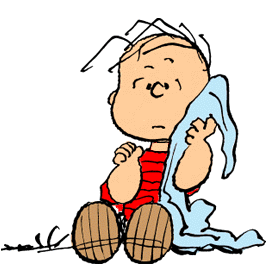In a letter to one of his critics, Richard Wright wrote of his masterpiece expressing the oppression of the African American in the mid-1900s, "In Native Son I tried to show that a man, bereft of a culture and unachored by property, can travel but one path if he reacts positively but unthinkingly to the prizes and goals of civilization, and that one path is emotionally blind rebellion. In Native Son I did not defend Bigger's actions, I explained them through depiction. And what alarms [the critic] is not what I say bigger is, but what I say made him what he is." That sums up better than I can put into words what "Native Son" is all about, as well as the very small backlash against it.
In the three sections of Native Son -- "Fear", "Flight", and "Fate" -- a black man named Bigger Thomas, according to Wright, goes along the path constructed for him by years of dangling carrots before his kind and then telling them they are to remain quarantined with the rest of the inopportune of his ilk. There is a sense of fear and self-denial Bigger Thomas struggles with throughout the book, a stark internal monologue flowing through the pages which reveal him as undereducated, impulsive, and dangerous, yet not on his entire freewill, but via the machine that tolerates the creation of black souls to obscure them, pack them into unwanted sections of urban areas, and make them do the dirty work, while occasionally out of guilt having one of the privileged throw a bit of "charity" their way.
The defining act of the book is where Bigger unwittingly smothers Mary Dalton, the daughter of wealthy whites who hired him as a driver, out of the great fear of being caught in her room at night. He had encroached in the place no white man wanted him, shook with the fear when her blind mother came in to check on her, and held a pillow over her face so as not to end his job, his little hope of providing food for his mother and two siblings, one of the few chances he knew whites ever gave him, but through killing Mary this was an act of aliveness as he stepped out of order of things and did something radical even if he had not intended it. The ensuing cat-and-mouse he played with the police and reporters were his moments to feel what had long been stripped from him by white society: the chance to direct his own destiny.
Though he ultimately faces the death penalty, the most inspiring and awful moments of the book are when his attorney, they call him Max, a Communist who represents him for free, gives his closing argument to attempt to save the life of Bigger. He goes as far as to condemn the "charitable" acts of the deceased's parents, Mr. and Mrs. Dalton, and this is a big crux of Richard Wright's book as he takes on those who oppress then throw dry bones to their victims, as Max states, "The relationship between the Thomas family and the Dalton family was that of renter to landlord, customer to merchant, employee to employer. The Thomas family got poor and the Dalton family got rich. And Mr. Dalton, a decent man, tried to save his feelings by giving money. But, my friend, gold was not enough! Corpses cannot be bribed! Say to yourself, Mr. Dalton, 'I offered my daughter as a burnt sacrifice and it was not enough to push back into its grave this thing that haunts me.'" And throughout this lengthy speech, Wright indeed uses Max as his mouthpiece to articulate the origins of the problems facing the African Americans and what they, as a race, have become in the face of such tragic realities.
The structure of the book is that it flows from paragraph to paragraph with hardly any breaks, and Wright says he's trying to show the day-to-day consciousness of his character. His thoughts race, fear paralyzes him -- if I were to judge it I would say it's hard to believe a mindstate could be so stark, outside of a few spare parts at the end, Bigger rarely seems to believe in anything besides living and dying. But that seems to be the aim to Wright, to show us all that such a mindstate is exacted upon those who have been used for the purposes of the wealthy and white. Thus, the structure is effective and the book is difficult to put down because there is constant tension and you wonder often, What direction is this all going in?
Even in 2008, "Native Son" has to be considered essential reading for anyone yearning for a glimpse of oppression's mindstate, especially as our material culture intensifies in its influence over us all, including those who have little to no chance in attaining what is purportedly offers. Before we look to condemn, we must learn to understand, something we as a people seem to overlook time and time again.
[From Max's closing argument] "He was _living_ only as he knew how, and as we have forced him to live. The actions that resulted in the death of those two women were as instinctive and inevitable as breathing or blinking one's eyes. It was an act of _creation_!"
